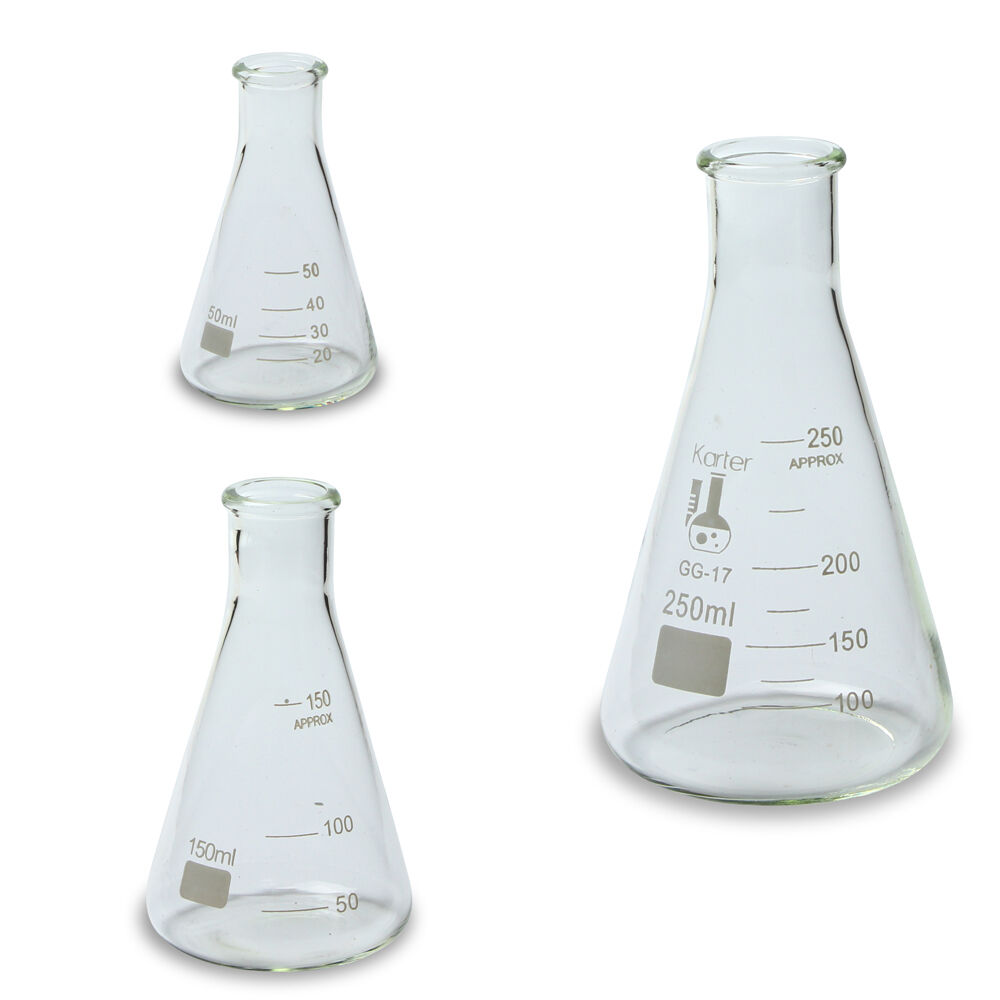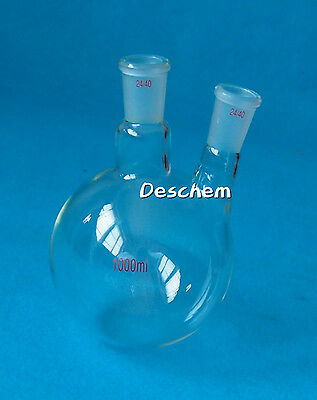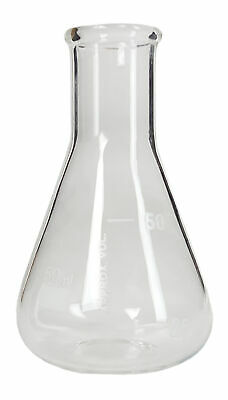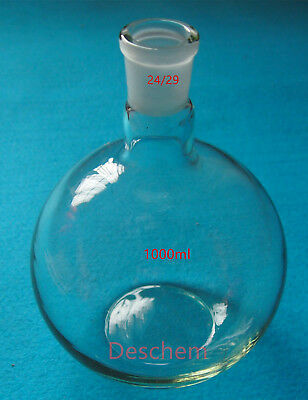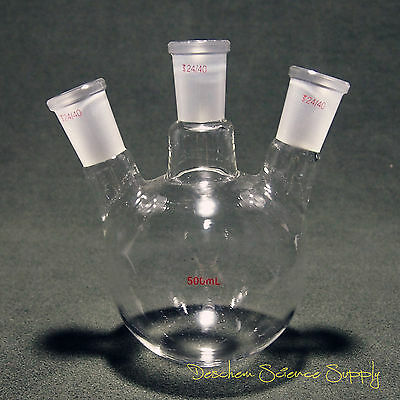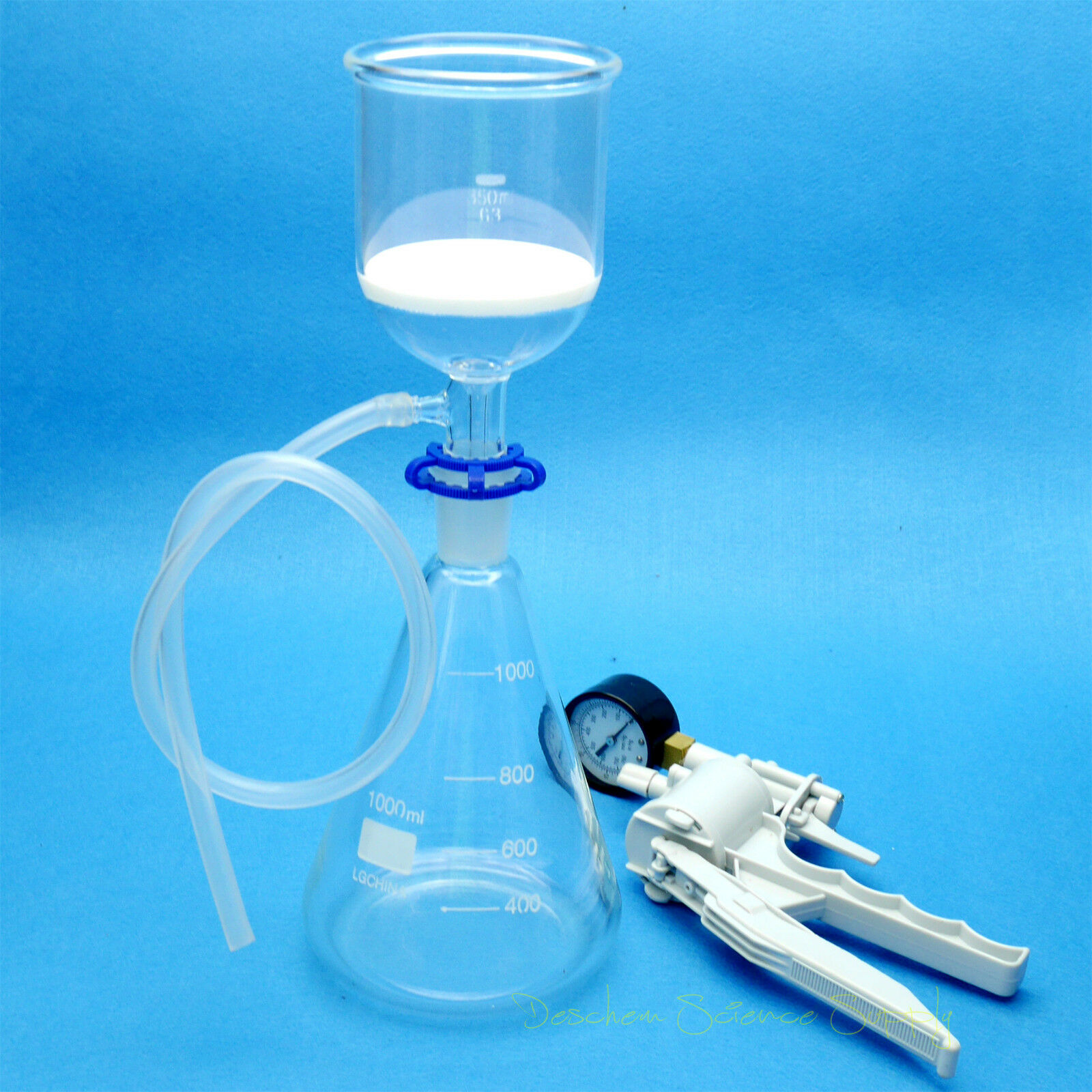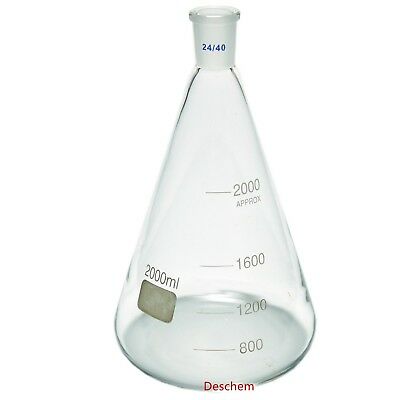-40%
Single Neck Flat Bottom Round Boiling Flask, 24/40 Joint, 1000mL
$ 17.39
- Description
- Size Guide
Description
This 1000mL borosilcate glass boiling flask is manufactured with carefully controlled wall thickness for proper symmetry between thermal expansion and mechanical strength.It features excellent chemical durability which provides contamination-free results and long life under the toughest lab conditions. The flask's neck is precisely tooled for uniform 24/40 ground glass stopper fit. It also has an extra large marking area.
The boiling flask is used for heating subtances that need to be heated evenly. The bulbed bottom allows the heat to distribute through the liquid more evenly. The boiling flask is mostly used in distillation experiments.
Specifications...
Capacity:
1000mL
Material:
Borosilicate glass
Flask Style:
Boiling
Flask Shape:
Flat Bottom
Neck Style:
Short
Top Style:
24/40 Ground Glass Mouth
Height:
180mm
Outer Dimension:
140mm
Autoclavable:
Yes
Lower Working Temp:
-230°C (-382°F)
Upper Extreme Temp:
490°C (914°F)
Upper Working Temp:
230°C (446°F)
Max. Thermal Shock:
160°C (320°F)
Safety Tips:
Always replace glass laboratory containers that have become scratched or abraded. These defects will make the glass prone to breakage while in use.
Thick-walled glassware, such as bottles and jars, should not be heated over a flame, a hot plate, or other comparable source of heat.
The maximum working temperature for Pyrex glassware is 490°C. However, once the temperature exceeds 150°C, ensure that heating and cooling is achieved in a slow and uniform manner.
Do not use hydrofluoric or hot phosphoric acid in glass.
Hot alkalis will etch glass.


